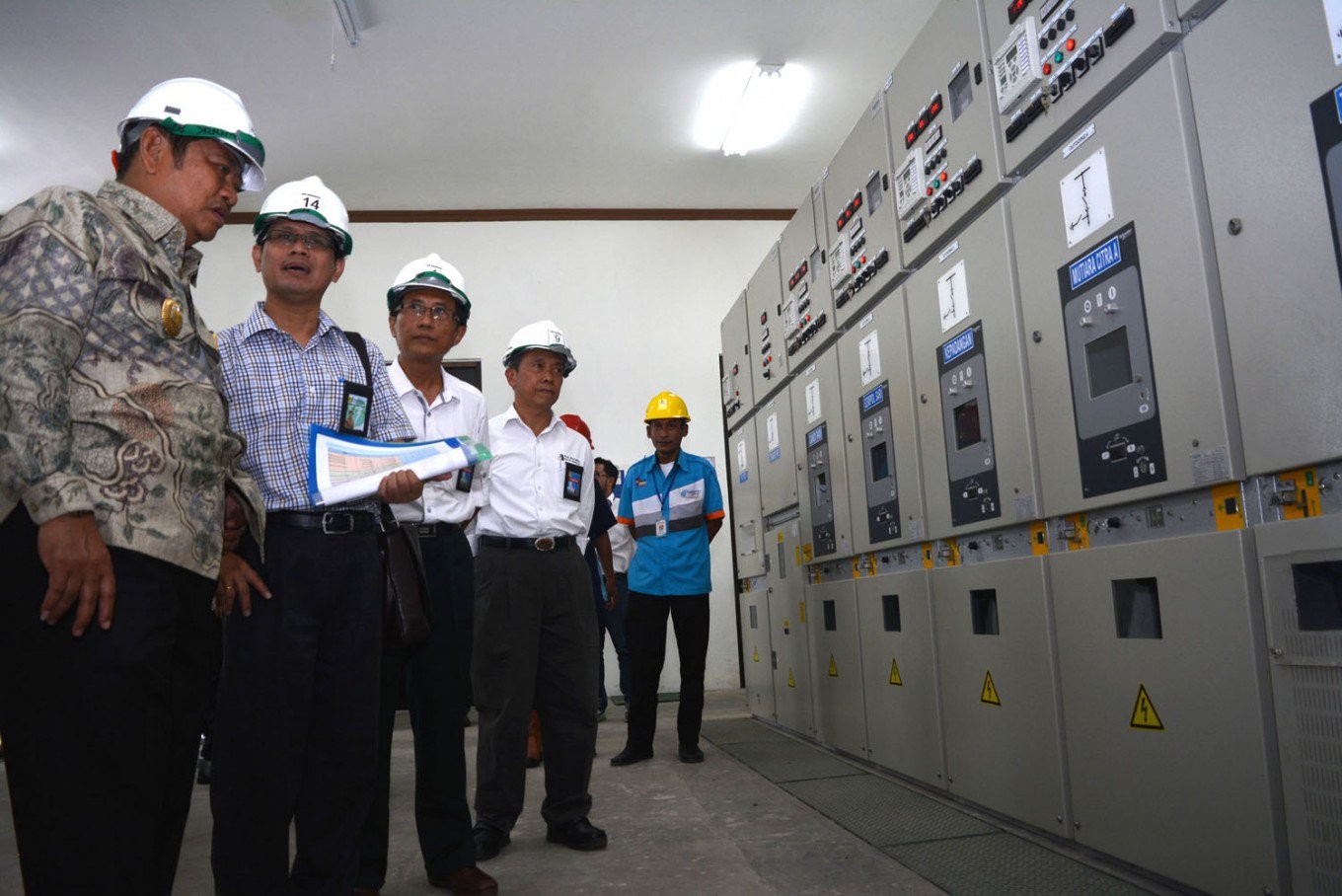Popular Reads
Top Results
Can't find what you're looking for?
View all search resultsPopular Reads
Top Results
Can't find what you're looking for?
View all search resultsSetback in 35,000 MW project irks Jokowi
Change text size
Gift Premium Articles
to Anyone
T
he government’s ambitious 35,000 megawatt (MW) power plant construction program has suffered another setback, this time regarding the sluggish issuance of business feasibility guarantees by the Finance Ministry.
President Joko “Jokowi” Widodo expressed his annoyance over the setback during a limited Cabinet meeting on Tuesday, emphasizing that all parties needed to draw on all necessary resources so that the project meets the 2019 deadline.
“I need to know what the exact obstacles are and I need them to be evaluated one by one so that we can understand the issues and resolve them in the field,” he said.
President director of state electricity company PT PLN Sofyan Basir has blamed the problem on the Finance Ministry.
Sofyan said several projects developed by independent power producers (IPPs) required a business feasibility guarantee in order for them to obtain funding from overseas banks, particularly those involving Japanese companies.
The Finance Ministry is responsible for issuing the guarantee, which provides assurance that PLN has the financial capacity to purchase the power produced by IPPs.
Despite the setback, Sofyan said that he remained upbeat that the program could still be completed by the deadline.
“A majority of programs developed by Chinese companies are already up and running because they don’t need the guarantee,” he said.
The construction of power plants with a total generating capacity of 25,000 MW was offered to the private sector, technically called IPPs, while the remaining 10,000 MW went to PLN, which almost holds a monopoly over the country's power business.
Sofyan claims that only 5,000 MW worth of IPP projects have reached financial closure, meaning that they are ready for construction. The financial closure of another 6,300 MW has been postponed until the business feasibility guarantees are issued with the expectation that the problem can be settled by the end of the year.
As of September, PLN data shows that only 232 MW of the total 35,000 MW is already in commercial operation.
Coordinating Maritime Affairs Minister Luhut Pandjaitan said in August that only between 23,000 MW and 25,000 MW of the project would be reached by 2019. However, several officials have said it could be far lower than that.
Poor business processes and governance issues in PLN, assigned to spearhead the construction and partner with the private sector, have also been blamed for exacerbating the already-protracted problems afflicting those in the private sector wanting to participate in power plant construction.
The 35,000 MW project is basically a continuation of the 10,000 MW policy launched by then president Susilo Bambang Yudhoyono during his first presidential term in 2005, to keep reserve margins — the difference between capacity and peak demand — within the International Energy Agency's recommended level of 20 to 35 percent.
As the nation is at risk of a power crisis should the level decline to below 20 percent, Jokowi has taken the initiative to boost power capacity to accommodate higher economic growth.
Of the 35,000 MW, only 18,000 MW are actually new projects offered to private investors, according to PLN data, while the remaining 7,000 MW are a carryover from Yudhoyono's term, and 10,000 MW are PLN's share.
Aside from the 35,000 MW program, Jokowi has also instructed PLN to seriously develop power plants fueled by renewable energy.
"We should give priorities to geothermal, waste, hydro and micro hydro plants because we have the potential to do so," said Jokowi.
PLN has repeatedly expressed its reluctance to develop renewable energy, citing expensive investment and the lack of subsidies provided by the government.
The government has initiated the development of waste-to-energy plants in seven cities across the nation, with the West Java capital of Bandung set to lead by example.
Bandung mayor Ridwan Kamil said that the most pressing concern was the unattractive price of electricity purchased by PLN from these plants.
“Investors said the price should be at least 17 US cents per kilowatt hour [kWh] for the plant to be feasible," he said.










